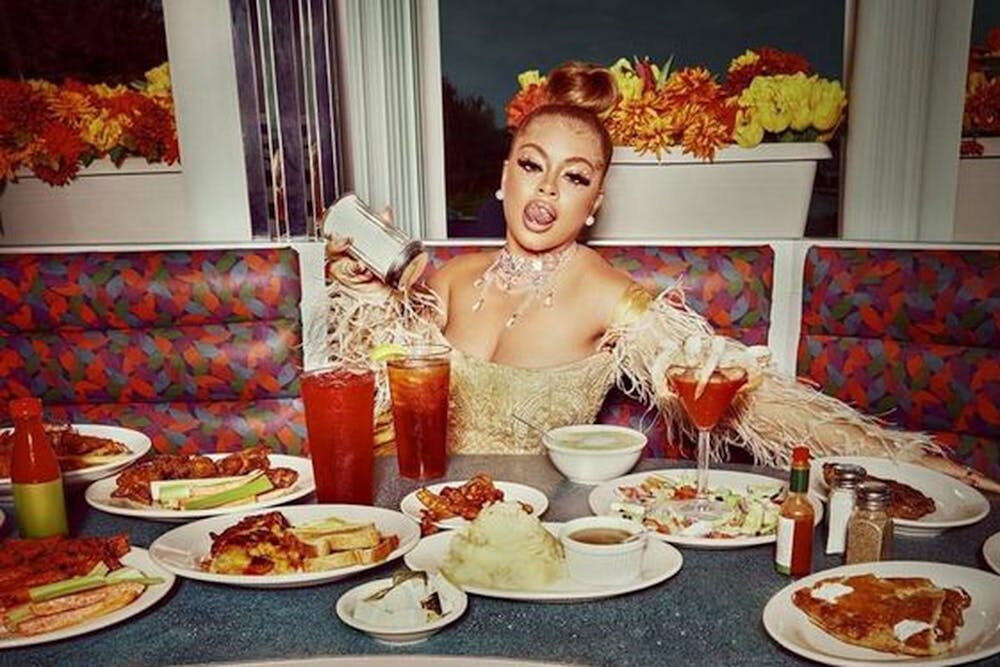Each fall, the hip-hop publication XXL releases their “Freshman Class”: a list filled with up-and-coming rappers who the editors believe will succeed dramatically in the coming year. Each year’s class is debated extensively or taunted ruthlessly, depending on their track record. This year’s list is among the strongest in years, and a shining light in the roster is Mulatto, a trash-talking battle-rap disciple playing an important role in rap’s sexual revolution.
A recurring debate in rap is “How sexual is too vulgar for rap?” Within that question lies the much more inflammatory debate: “How sexual is too vulgar for women in rap?” Every female rapper who has addressed sexuality has drawn violent criticism. From Lil Kim’s “How Many Licks” to Nicki Minaj’s “Anaconda” to the target of the day “WAP,” every female rapper embracing her sexuality draws violent criticism.
Global responses to such raunchy songs vary. Some argue that these women are treated hypocritically, while others express moral outrage, as Ben Shapiro does in this Kafkaesque nightmare of a video. Within rap, these responses provoke a larger debate over the prevalent misogyny still woven into the genre’s fabric. Ultimately, these women are using their talents and platform to catalyze their metamorphoses from the object of sexual fantasies to active participants in them. Insecure men and the elderly are often incensed by this trend. But historically, if a cause is opposed by these two groups, it is most likely to be considered a worthy one.
Alyssa Michelle Stephens, who goes by Mulatto, was undeniably born for this movement. At the age of 16, she entered the Lifetime Series “The Rap Game” and won. She is a world-class rapper who began with fury in her voice before mellowing and establishing herself as “The Queen of Da Souf,” which she appropriately titled her recent project, easily one of the best of the year.
Sonically, Mulatto wears her influences on her sleeve. The beats show a reverence for the great rap cities of the American South. She can rock South Florida club-incinerators, syrupy Atlanta trap anthems and New Orleans firing squad hi-hats over a soaring violin sample without skipping a beat. There is also a strong note of R&B, especially in the second half of the album.
On these beats, Mulatto is whatever she wants to be. At times demonic, and at others heartbreakingly transparent, she utilizes a toolbox filled with flows and concepts from the greats, most obviously Gucci Mane, who appears on the song “Muwop,” delivering his most coherent verse in years. Mulatto speaks her mind fearlessly, and she leaves a trail of “lame b*tches” in her wake. On the near-perfect song “No Hook,” Mulatto is emotionally vulnerable, cognizant of fame’s issues and pissed right off about them — all at once. It is a formidable track that colors outside the lines most rappers desperately stay within.
No discussion of this album would be complete without addressing sex. About half the tracks on the album are conceptually devoted to the subject, while the others feature it prominently. Mulatto raps about men as irreverently, graphically and disrespectfully as Juicy J or Lil Wayne ever did about women.
Men are completely replaceable, clingy sex objects throughout the project, and if that makes you uncomfortable, it may be worth examining just why that is. By being so crude and callous, Mulatto is forcing male fans to see women’s perspectives on objectification in rap.
Alyssa Michelle Stephens fully fleshes out the character of Mulatto. She is a deeply intelligent person toting the value of family and loyalty from the perspective of a body-positive party rapper. She has an indispensable gift for second-hand characterization: you learn more about her than she explicitly says. There are few records in the history of rap in which an artist has a voice this strong, let alone one from a 21-year-old.
The battle for sexual agency is ongoing. Women are taught to be modest and reserved regarding their sexuality, but Mulatto asserts, in what may just be the most groundbreaking idea of the century, that women are equal to men. Men rap about sex — that is how she is going to rap about sex.
Get The Chronicle straight to your inbox
Signup for our weekly newsletter. Cancel at any time.

